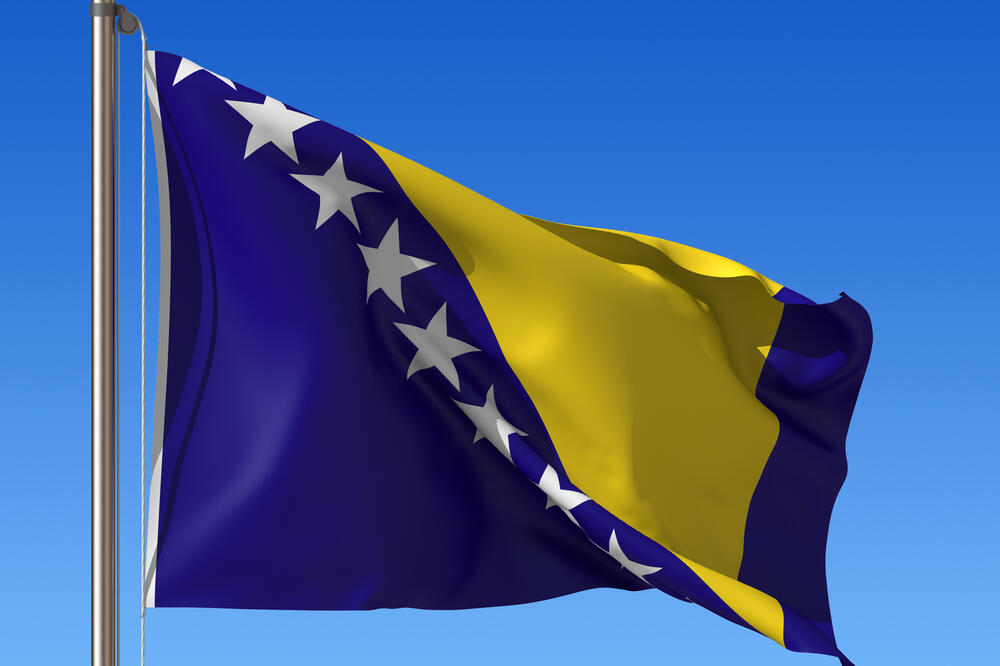A quarter of a century after the war, the problems in Bosnia and Herzegovina remained the same. Tensions between the conflicting parties intensified again. There is no improvement in the situation in sight
He's been disoriented for a long time and because of his (bad) character, he's at odds with everyone." That's how the second most important representative of the Muslim Bosniaks, Fahrudin Radončić, characterized the most important Bosniak politician, Bakir Izetbegović, a few days ago. This is just one example from the huge range of quarrels and personal insults in Bosnia and Herzegovina.
Some single goal that could unite - does not exist. Bosnian Serb leader Milorad Dodik wants to secede half of the country controlled by Serbs as soon as possible. And Croats want more autonomy for themselves.
Muslims make up almost half of the 3,5 million inhabitants of Bosnia and Herzegovina. They rule together with the Catholic Croats (15 percent) in one part of the country - in the Federation of Bosnia and Herzegovina. Orthodox Serbs make up about a third of the population. Everyone against everyone - that's the motto in Bosnia and Herzegovina.
All against all
But it can be worse. All three nations cultivate a culture of conflict within their own ranks. The consequence of this is that in tourist attractive Mostar, divided between Bosniaks and Croats, municipal elections have not been held for nine years, because the two sides hate each other and prevent the holding of joint elections. The European Union and the United States of America invested billions of euros in that country and sent an entire army of diplomats and experts there. The results are utterly devastating. Croatian President Kolinda Grabar-Kitarović recently again, as a kind of protector of Croats in neighboring Bosnia and Herzegovina, complained about alleged extremist Muslims. According to Serbian Prime Minister Aleksandar Vučić, relations within BiH itself, as well as those with its neighbors, are as bad as they have not been since the beginning of the war 25 years ago.
The causes of the blockade that led to economic and social misery are obvious. The state arrangement pushed by the West after the end of the war makes the country unlivable: two mostly independent entities, ten highly autonomous cantons and one city jointly administered by the entities - Brčko district. By far the most money from the state coffers is allocated to the overblown administration.
A new conference on a revised peace agreement fails to be organized due to the different goals of the three nations. The Bosniaks want a strong, unified, federal state, the Serbs just want out of the country they don't like, and the Croats are already more inclined towards their neighbor - Croatia - than they are towards the capital, Sarajevo. The situation is so hopeless that two years ago there were severe social unrest in which the BiH Presidency building in Sarajevo was set on fire.
Party leaders control everything
The main cause of all the troubles, according to the widely held opinion both in BiH and abroad, is the undemocratic structure of all parties. Each of them is focused on its own leader who undeniably has all the power. He is elected again and again, and in turn he takes care of his supporters, for example when it comes to employment in the state apparatus or state enterprises. This leader also protects them before the courts, helps their small businesses through public affairs and hides the big corruption that is encouraged even more.
Such a ruling system, in addition to control over the state, the economy and the judiciary, is also based on the media system that the parties divided among themselves. Managing marketing, because without advertising none of the numerous media in BiH can survive - influence is also exerted, as well as by leaving editors loyal to the parties. The media can thus be instrumentalized at any moment, for example when it is necessary to cover up the dubious affairs of people from parties or when it is necessary to denigrate political opponents.
Bonus video:





